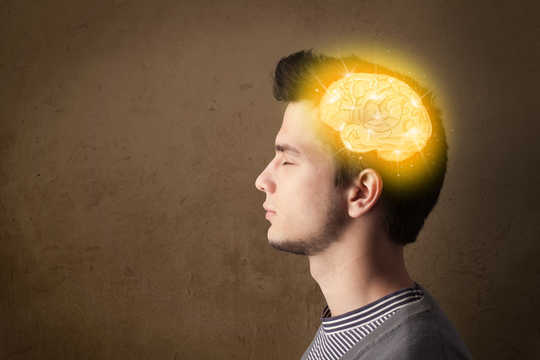
Taking nonprescribed psychostimulants may slightly improve a person’s short-term focus but impede sleep and mental functions that rely on it—such as working memory.
The use of prescription stimulants by those without medically diagnosed conditions marks a growing trend among young adults—particularly college students seeking a brain boost.
“Healthy individuals who use psychostimulants for cognitive enhancement may incur unintended costs to cognitive processes that depend on good sleep,” says lead author Lauren Whitehurst, a former graduate student in the Sleep and Cognition Lab at University of California, Irvine,who’s now a postdoctoral fellow at the University of California, San Francisco.
“Our research shows that while psychostimulants may mildly curb natural attentional deterioration across the day, their use also disturbs sleep and post-sleep executive function.”
Get The Latest By Email
Psychostimulants vs. placebo
The study included 43 people between 18 and 35 years old. Before receiving any medication, they completed baseline working memory and attention tasks. For the latter, participants had to track several moving circles on a screen for a short period of time. For working memory, researchers asked them to remember and manipulate a set of letters while performing simple math equations and then after a short retention interval, recall all the letters.
In one subsequent 9 AM lab visit, researchers gave subjects an inactive placebo pill; in another, they got 20 milligrams of dextroamphetamine—a drug in the same class of psychostimulants as Adderall. At 75-minute, 12-hour, and 24-hour intervals after each dose, participants repeated the attention and working memory tasks—spending the night in private rooms in the lab, where their brain activity was measured via electroencephalography.
“Our research suggests that the purported enhancement to executive function from psychostimulants in healthy populations may be somewhat exaggerated, as we found only minor daytime improvement in attention and no benefit to working memory,” says coauthor Sara Mednick, associate professor of cognitive sciences and director of the Sleep and Cognition Lab.
“In addition, we noted a large impairment to nighttime sleep, even though the medication was administered in the morning. Psychostimulants also led to detrimental consequences to cognitive functions that rely on good sleep. Thus, people who are taking these drugs to perform better in school or at work may feel as though they are doing better, but our data don’t support this feeling.”
Pay attention
The researchers discovered that attentional performance deteriorated throughout the day whether subjects received the dextroamphetamine or the placebo—an important finding that may help guide future studies on attention.
Researchers also determined that when participants ingested dextroamphetamine, they did about 4% better on the attentional task 75 minutes later than did the placebo group—and than they themselves had done during baseline testing. This small boost was not reflected in the 12- or 24-hour test, after sleep.
For working memory, on the other hand, subjects who had taken the stimulant performed the same as those who had taken the placebo on the 75-minute and 12-hour tests. But 24 hours after ingestion, the dextroamphetamine group did markedly worse on the test than did the placebo group, and overnight EEG and polysomnography measurements showed significant reductions in total sleep time and quality for those given the stimulant.
The working memory findings have been published online in Behavioural Brain Research. Additional coauthors are from UC Irvine and UC Riverside.
The attention findings appear in Cognition. Coauthors are from UC Irvine, UC Riverside, the Istituto Italiano di Tecnologia, and Harvard Medical School.
Support for this research came, in part, from the Office of Naval Research and the National Institute of Mental Health.
Source: UC Irvine
books_herbs








